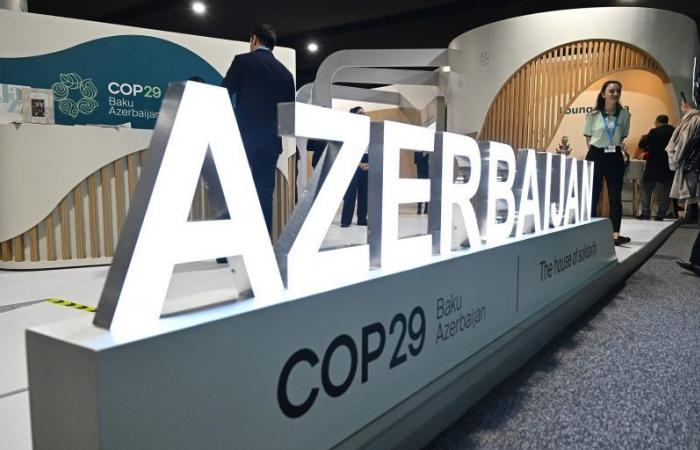COP 29 chaired by Azerbaijan concluded this weekend with a commitment to triple annual funding for the countries most threatened by climate change, with a target of 300 billion dollars by 2035. Countries producing hydrocarbons have included in the final text the promotion of natural gas as a “transition fuel”. Southern countries, including Pacific island countries, and NGOs denounce the lack of ambition and the ambiguity of the final text.
It took two nights of extension to reach an agreement on the financing of aid by the most developed countries to the countries most vulnerable to climate change: going from 100 billion dollars annually to “at least 300 billion”… d by 2035. The Gulf oil states and China only commit to voluntary contributions.
The poorest countries and the Pacific island states, which asked for at least double and had left the meeting with the presidency of the COP to protest against the final draft text, consider the agreement “insignificant”, “not ambitious enough », “too weak, too late, and too ambiguous in its implementation”. The Brazilian Minister of the Environment, who will host the next COP in Belem, described the Baku meeting as a “painful experience”.
UN Secretary-General Antonio Gutteres said he had “hoped for a more ambitious result, both financially and in terms of mitigation”.
Oil and gas producing countries on the move
Last year in Dubai, the final text contained a call – snatched away – for the transition away from fossil fuels. This call does not appear in the 2024 version adopted in Azerbaijan, for which hydrocarbons represent nearly two thirds of its GDP and 95% of its export revenues. The text even directly alludes to natural gas as a “transitional fuel” and guarantee of “energy security” but, notably under pressure from Saudi Arabia, without validating the European proposal for an annual monitoring system for efforts to exit coal, oil and gas.
As for the adoption of carbon market rules, the exchange of CO2 emissions between countries and companies to enable the latter to achieve their climate objectives – a subject that has remained at a standstill for nine years – it still does not satisfy the NGOs who fear that these exchanges will undermine efforts to reduce emissions instead of promoting them.
France was absent from Baku: Emmanuel Macron had planned to be represented by the Minister of Ecological Transition Agnès Pannier-Runacher. The latter then canceled its participation, in reaction to new attacks against the “colonial rule” of France made by Azerbaijani President Ilham Aliev in front of representatives of the island countries.






